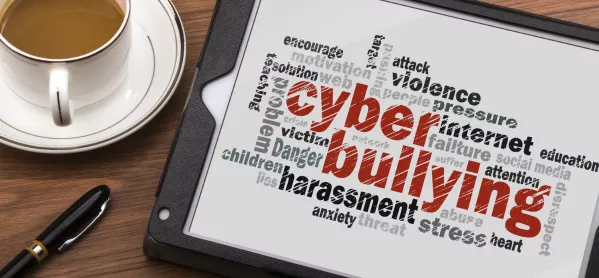Every day our young people are exposed to hate speech. Often in the seclusion of their own bedrooms. This online hatred is directed against women, against the LGBT community, against the disabled, against foreigners and against refugees. The largest proportion is aimed at Muslims.
The nature of the hatred may vary - from dog-whistle calls about “swarms of immigrants” to unprintable outpourings against often faceless victims. If you want to see examples, it is not difficult to find them - on Twitter, YouTube and even in the comments sections of the online press.
To experience reality through this distorted online prism is to see a world of dark shadows, threats and despair, not at all the sun-filled days of childhood memories.
And yet this is a world to which many of our young people are exposed. In the most recent study by Ofcom (in 2016) one-third of internet users between the ages of 12 and 15 reported seeing hate speech online during the previous year. The likelihood is that this number is growing along with the relentless expansion of the online world.
Countering hate speech
We know that recorded hate crime has increased significantly in recent years (from 45,000 in 2013/14 to over 80,000 in 2016/17) and that 78 per cent of it has been classified as race-hate crime. The think tank Demos has analysed a sharp increase in online hate speech on Twitter. To take just one example, in a study of online Islamophobia during July 2016 Demos identified 468 anti-Islamic tweets per day in the UK - or nearly 15,000 for the month.
Of course, many teachers and many parents are deeply worried about this intrusion into young people’s lives, but - unlike them - we are often unfamiliar with the virtual world of cyberspace. How should we occupy this strange terrain without invading the precious private identities of our children?
Fortunately, we are not alone. There are many organisations working to support those attacked by hate speech and to promote an alternative vision of our world.
Last year the Mayor’s Office for Policing and Crime (MOPAC) organised the first-ever Summit on Online Hate Speech at City Hall. It was attended by 70 groups - support organisations for targeted groups, human rights groups, local authorities, researchers, the police and CPS. A range of ways to combat online hatred were discussed. These included regulatory measures - recent pressure including from the UK parliament on the social media companies has been important in that respect. Even more significant has been the promotion of a counter-narrative of hope and humanity, making use of media of all kinds to show what unites us rather than what divides us.
This counter-narrative is being developed across the world. In Europe for example the Council of Europe has created a range of very engaging and relevant materials for young people.
Developing hope
The Positive Messengers consortium is an European Union project working across seven European countries both to understand the phenomenon and to develop a counter-narrative of hope. In the UK, it has already produced two reports about online hate speech and will be developing a social media campaign in the summer aimed to coincide with Refugee Week. One of the conclusions of the initial report was that of all the many things which need to be done, the most important - perhaps the key - was in the field of education.
As Nelson Mandela once said: “The true character of a society is revealed in how it treats its children.”
To that end, Positive Messengers has developed a range of materials for use in schools - both primary and secondary. They are intended to help teachers work with their pupils both to explain online hate speech and to arm them against it - to develop their own positive counter narratives. They are currently in draft form and available for use - and will, for example, be presented at the forthcoming International Festival of Learning in Bury St Edmunds on 16 April at West Suffolk College in Bury St Edmunds.
Language is what defines us as human. But without understanding the power of language - both for good and for evil - we are susceptible to the obfuscations and simplifications of the demagogues and enemies of truth. We are easier prey to hatred and deceit. This, it seems to me, is a major challenge for educators in the world today.
Lid King was director of the Centre for Information and Language Teaching (CILT) and between 2003 and 2011 national director for languages, taking forward the implementation of the National Languages Strategy for England. He has represented the UK on language issues at both the European Union and the Council of Europe. He established the Languages Company in 2008, to promote languages pedagogy and policy issues
Tickets are available International Festival of Learning at www.ifleast.org
Want to keep up with the latest education news and opinion? Follow Tes on Twitter and like Tes on Facebook

